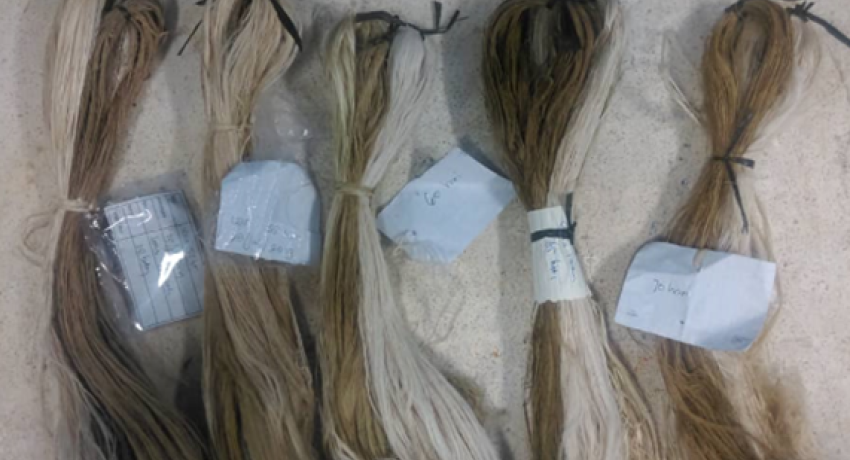Following Law No. 2 of 2003, the Indonesian government encourages using natural and artificial resources to improve national defense. However, technically, as many as 800,000 active Indonesian soldiers need at least bullet-resistant panels, which unfortunately still have to be imported. Therefore, further research is required on materials for high-performance ballistic armor applications based on local materials to reduce this dependence. This is what makes Prof. Dr. eng. Ir. Didik Nurhadiyanto from the Mechanical Engineering Education Department of UNY was interested in researching the potential of hemp fiber as a bulletproof material.
Bulletproof panels consist of two layers. The front panel or first strike layer is usually made of hard materials such as ceramics (alumina, boron carbide, and silicon carbide). This layer serves to hold and destroy the tip of the bullet. The rear panel helps to absorb the kinetic energy of the bullet. "The main function of the fiber is to absorb a large bullet energy to be able to withstand the bullet when it penetrates the panel," said Prof. Didik.
Hemp fiber is a natural fiber with excellent mechanical properties because it has a tensile strength of 849 MPa and a toughness of 16 MPa. It has the potential as a reinforcement in bullet-resistant composite panels. From these characteristics, hemp fiber can absorb bullet energy after being hit by the first layer strike. The potential for hemp fiber to be developed is tremendous. Currently, hemp plants have been widely produced in India, Uzbekistan, China, Nepal, Vietnam, Myanmar, Zimbabwe, Thailand, and Egypt.
Indonesia also has excellent potential in terms of hemp. For example, in the Wonosobo area, hemp plants have been cultivated for various needs, including fabric fiber, handicrafts, and furniture. "If the demand for hemp fiber in Indonesia increases, the cultivation of hemp plants will also increase so that the price of hemp fiber will compete with other natural and synthetic fibers. From here, hemp fiber was developed as a basic material for bullet-proofing that is environmentally friendly,” said Prof. Educate.
Prof. Didik explained that the manufacture of hemp fiber as a bulletproof panel material goes through the stages of making hemp fiber to pressing. Various studies, utilization, and treatment of hemp fiber to create hemp epoxy composite panels that are bulletproof level II and IIIA standard NIJ, but this composite has not been able to withstand level IV bullets. Level IV bullets have a sharp shape. This property causes hemp fiber to be unable to resist sharpness even though hemp fiber is very tough. Therefore, hemp fiber is more suitable as a material for the back layer.





